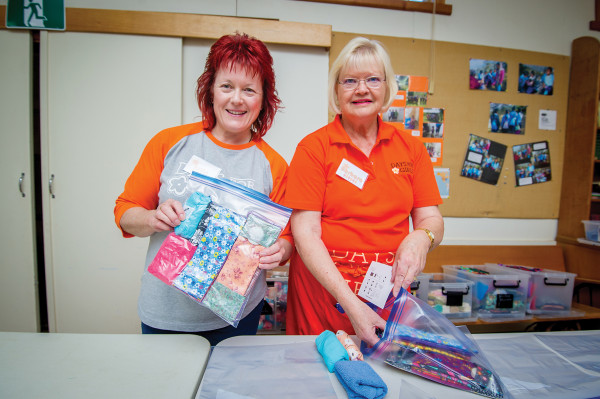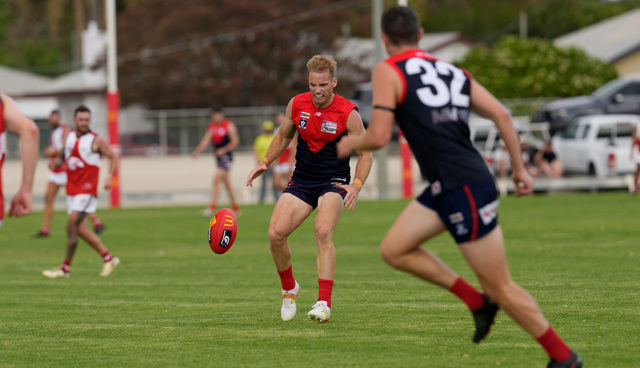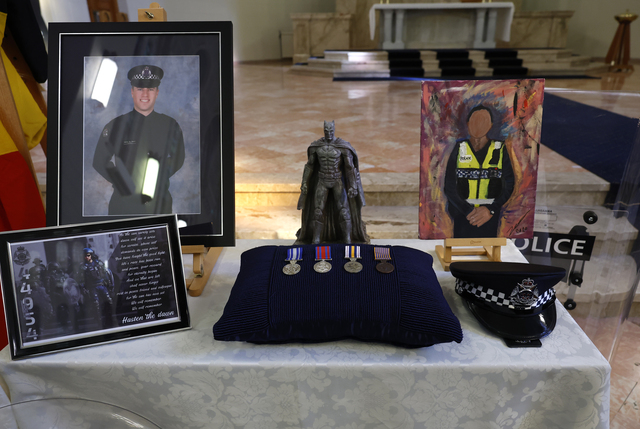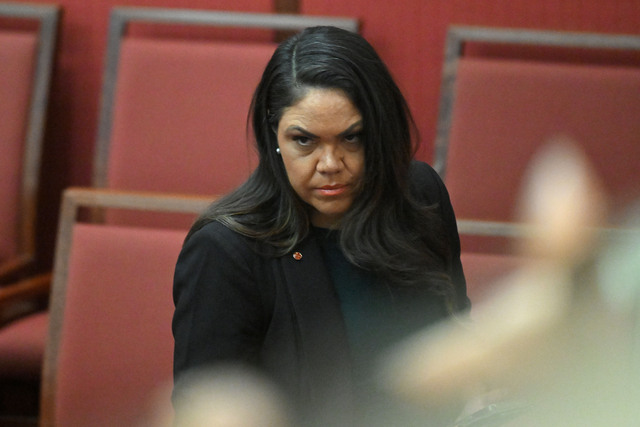A group of Sunraysia women are making a difference to the lives of thousands of other women through the Days for Girls Initiative. Caitlyn Morgan caught up with local members to discuss the impact the initiative has made. Picture: Ben Gross
FOR many women, we don’t think twice when it comes to stocking up on feminine care products ready for that “time of month”.
But for others they are filled with dread and concern with no accessibility to what many would consider basic human needs.
When Martine John first heard about Days for Girls Initiative at an event in Halls Gap in 2015, she knew she wanted to help make a difference.
Days for Girls mission is to create a more dignified, free and educated world through access to lasting feminine hygiene products.
“It just made me really sad to know that some women don’t have anything,” she says.
“At the time I felt I needed something to keep my mind busy and that was it.”
What initially was planned as a two-day workshop has since become a monthly working bee, with more than 30 local women involved.
“More than 100 women and men attended the workshop and many were asking when we would be doing it again,” Martine recalls.
“They said they needed something in their lives and so we decided to keep it going.
“It’s become like a men’s shed but for women.
“Some of them are great sewers but with not many people still wanting quilts they weren’t using their skills, so this has given them something to do and a purpose.”
Held monthly, alternating on Saturdays and Sundays, volunteers work together to sew, pack kits and assemble the items each kit contains.
Each kit contains two moisture barrier shields, eight trifold liners, one hotel sized soap, two pairs of underpants, one washcloth, a bag and a pictorial instruction sheet.
Martine says the group has a goal of creating 1000 kits a year, which are distributed within Australia and overseas to women who wouldn’t otherwise have access to these necessities.
“None of us knew each other before but quickly became friends as we all have that one common goal,” Martine says.
“It’s about giving women dignity and working together to educate others.
“They are sent to women all over the place, from the Northern Territory to Thailand and New Guinea.”
Martine says recently she was “shocked” to be alerted to the need for kits for local women. She is now working on creating a hybrid kit for women in the Sunraysia community.
“There is a need for local women in a range of cases, this includes women who are homeless, refugees and in domestic violence situations,” she says.
“The hybrid kit will not only include reusable items but also throw away items for one month.
“These are a smart girls kit, they are environmentally friendly and will last up to three years.”
Among those who have volunteered for multiple years are Julie Rosher and Pam Smith.
While Pam sews and Julie spends her time doing odd jobs including packing and folding, both play an important role in ensuring the kits are created.
“When I first saw the leaflet I thought it was a great chance to meet other people and learn what it was all about,” Julie says about the reason she first joined.
“I thought it was a great idea and while I can’t sew there are lots of other jobs to do.
“I wanted to make a difference to the lives of others.”
Pam admits making an impact on others was also the reason she joined.
“I was a sewer and when Martine told me I honestly had never thought before about what women in third world countries did, it never crossed my mind that they wouldn’t have access to what we do,” she says.
“A couple of times we have heard people talk about the situations these women are in and the stories are horrific.
“For some of these girls as soon as they get their period and it’s noticed as they begin missing school they are married off as they are considered ready to have children.
“Others have to sleep in the goats’ shed and aren’t allowed into the house during that time.
“It is definitely a worthwhile cause.”
Pam says seeing the videos taken of the women receiving the kits is what inspires her to continue being involved.
“When they receive the kits the girls are just so excited, some of them have absolutely nothing and seeing their reaction is so touching,” she says.
Martine added, “It is heart-warming, we heard about one girl who received a kit and was crying because she couldn’t believe someone from Australia had made something just for her.”
“Many are just amazed of the idea that someone in another country made something for them.
“We are all equal women so we ensure each kit is made to a high standard.”
Martine says the the kits have already made a big impact in the lives of those who have received them.
“Before women had to use anything they could, they used everything from mattress stuffing to corn cobs, leaves and some sat on cardboard,” she says.
“It has stopped a lot of women from being married off quite young, which stops the problem of them having children too young.”
Martine says another important aspect of the kits is the education that goes with them.
“When they are given the kits, they are educated on the fact that all it means is that they are fertile and not that they are cursed like many believe,” she says.
“It’s all about giving them dignity.”
Days for Girls began in 2008 by founder and CEO Celeste Mergens.
Since it was founded, it has reached more than one million women and girls in more than 125 countries with DfG Kits and menstrual health education.
This translates into more than 115 million days of “dignity, health, and opportunity”.
For more information or to get involved visit www.daysforgirls.org.







